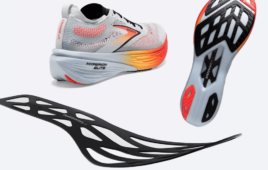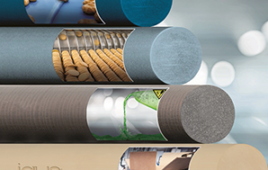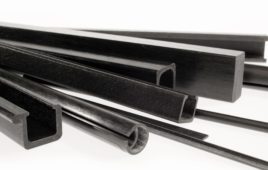Only 0.004 in. (0.1 mm) in diameter, microbeads flow freely over the inside of hollow molds in processes like slush molding and rotomolding. After years of producing beads with this micro particle-size distribution for non-automotive markets, Teknor Apex has acquired the rights to market the beads internationally to the automotive industry through an agreement with Bayer MaterialScience AG. Teknor Apex will supply the microbeads under the trade name Tek-Spheres and can produce them in Shore A durometers from 55 to 90. The company manufactures microbeads by melt compounding PVC resin with color, plasticizer, and other additives, producing a homogeneous material that melts rapidly in contact with a heated mold.

Of the various hollow-mold processes available for thin-skin applications on automotive components such as instrument panels and headrests, one of the most commonly used is slush molding, in which a partially open mold rotates on a single axis. Another method, rotational molding, uses a closed mold in a two-axis system. To meet the requirements of these processes, Teknor Apex supplies Tek-Spheres products at different size levels.
The direct product of the melt compounding method used for making Tek-Spheres is actually minibeads, with diameters in the 0.020 to 0.060 in. (0.5 to 1.5 mm) range. This is already smaller than the standard 0.125-in. (3.2 mm) pellet compound used in injection molding and extrusion, and it is suitable for various open-mold processes, including slush molding. In a subsequent step, Teknor Apex produces microbeads with a particle size of 0.004 in. This smaller particle-size distribution is more suitable for rotomolding and for slush molding applications involving deep draw areas, severe undercuts, or fine detailing.
In contrast to these solid materials, plastisols are liquid formulations of PVC resin in a carrier consisting primarily of plasticizer. “Microbeads avoid a range of problems posed by plastisols,” said a company spokesperson. “Plastisols vary in viscosity in accordance with ambient temperature and other mixing conditions, may contain entrapped air that causes pinholes or voids in finished products, may undergo separation of components during storage, can require up to three times longer for color changeovers, and entail use of volatile organic solvents for cleanup after spills.”
Teknor Apex
www.teknorapex.com
::Design World::
Filed Under: Automotive, Materials • advanced





Tell Us What You Think!